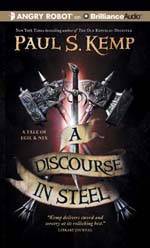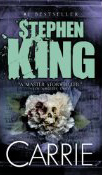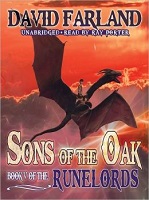
 Carniepunk
CarniepunkBy Rachel Caine, Rob Thurman, Kevin Hearne, Seanan McGuire, Jennifer Estep, Allison Pang, Kelly Gay, Delilah S. Dawson and Kelly Meding
Narrated by Candace Thaxton and Kirby Heyborne
Publisher:
Simon & Schuster Audio
Publication Date: 23 July 2013
[UNABRIDGED] – 14 hours
Themes: / carnivals / urban fantasy / paranormal romance / mind-readers / synaesthesia / imprisoned goddesses / mermaids / short stories / tie-ins /
Publisher summary:
Come one, come all! The Carniepunk Midway promises you every thrill and chill a traveling carnival can provide. But fear not! Urban fantasy’s biggest stars are here to guide you through this strange and dangerous world. . . .
RACHEL CAINE’s vampires aren’t child’s play, as a naïve teen discovers when her heart leads her far, far astray in “The Cold Girl.” With “Parlor Tricks,” JENNIFER ESTEP pits Gin Blanco, the Elemental Assassin, against the Wheel of Death and some dangerously creepy clowns. SEANAN McGUIRE narrates a poignant, ethereal tale of a mysterious carnival that returns to a dangerous town after twenty years in “Daughter of the Midway, the Mermaid, and the Open, Lonely Sea.” KEVIN HEARNE’s Iron Druid and his wisecracking Irish wolfhound discover in “The Demon Barker of Wheat Street” that the impossibly wholesome sounding Kansas Wheat Festival is actually not a healthy place to hang out. With an eerie, unpredictable twist, ROB THURMAN reveals the fate of a psychopath stalking two young carnies in “Painted Love.”
This was a short story collection with urban fantasy, paranormal romance, and carnival themes. On the whole, the book was fairly average. There were some fantastic stories and there were some terrible stories. I’ve reviewed each story individually, below. The narration was mostly done by Candace Thaxton, though Kirby Heyborne narrated a few including “Painted Love” and “The Demon Barker of Wheat Street.” All in all, I found Thaxton’s narration preferable to Heyborne’s, but that might have been because I liked more of the stories she narrated than Heyborne. Heyborne’s narration bordered on creepy, and while it fit the genre/story, it also made me kind of uncomfortable. In honesty, I’m not sure I can recommend this book unless someone is looking for a specific short story from one of the authors. There were a few stories that I read that I’m now interested in the world, but most were either very average or downright terrible. This is also not a book for younger readers–some of the stories are quite graphic, mostly sexually. So if you want the book, be warned that it’s probably not “good family listening.”
Stories:
“Painted Love” by Rob Thurman. A creepy tale of a carnival manager and his killer tendencies, seen through the eyes of a demon that escaped from Hell. The demon, called “Doodle,” wants to see the world and so latches onto people as he makes his way around, seeing people of all types. Unexpectedly, Doodle finds that he’s awed by the strength of the psychic at the carnival–and steps in when Bart, the manager, tries to kill her and rape her sister. It was an interesting idea, made all the more creepy by the narrator’s voice. Unfortunately, most of the story was character development of the members of the carnival; the actual meat of the story felt like it was fairly rushed.
“The Three Lives of Lydia” by Delilah S. Dawson. I believe this was said to be a story of “Blud,” though I haven’t read any of Dawson’s work to have familiarity with the story or the characters. This was a sad story of a girl who woke up on the outskirts of a carnival in a different world, a world called “Sang.” The girl, Lydia, is a “stranger” in the world, a transient. She falls in (and in love?) with a vampire, and takes a job at the carnival. Unfortunately, she’s also stalked by some of the less-nice members of the carnival, and skates the line between her waking life and the life in her “dream.” While this was a sad story and somewhat predictable, I actually kind of liked it. I think I might want to read more in this world, if it’s more of the carnival “dream” world.
“The Demon Barker of Wheat Street” by Kevin Hearne. A story from the world of The Iron Druid Chronicles, therefore starring the Druid Atticus O’Sullivan, his Irish wolfound, and his student Granwael (spelled wrong I’m sure). This is supposed to take place a few years after the events in Tricked, which I haven’t read yet (I’ve only read the first book in the series, Hounded). This time, Atticus and Granwael decide to go into a “freak show” in a carnival and find something much more sinister than a typical carnival freak show. It results in a battle with some ghouls, as might be expected. Just like Hounded, this story is pretty light but entertaining enough with a good bit of action, if slightly formulaic.
“The Sweeter the Juice” by Mark Henry. A terrible and disgusting story about a transvestite looking for a new street drug to help pay off her debt at a sex change clinic. This story had a lot of unnecessary detail. It was also needlessly disgusting. I regretted eating while listening. If I could give negative stars, this story would get them.
“The Werewife” by Jaye Wells. Be careful what you wish for, even if it’s only in the darkest recesses of your mind. That goes double when you’re at a carnival with a freak show run by someone who can read minds. A story, as you might guess from the title, about a man and his werewolf-wife. The ending in this was almost “happy” and the story didn’t go where I thought it would. It was a welcome relief after the last story.
“The Cold Girl” by Rachel Caine. A short story in the vein of Twilight, down to the emo teenager “in love.” This particular emo teenager’s boyfriend turns out to be a murderer and she looks to be his next victim. She’s warned by a psychic at the carnival, but is also told that there is nothing she can do, and that she will meet The Cold Girl soon. This was utter rubbish. I suppose that if you liked the Twilight series, you might like this, but the truth is, the Twilight series did terrible things for a wonderful genre, the least of which was inflicting further crap like this on unsuspecting readers.
“A Duet with Darkness” by Allison Pang. This story is listed by Goodreads as “book 0.5” in the Abby Sinclair series. I’ve never read the series, but I do like the idea of music and synaesthesia as a tie to the magical world. In this story, Melanie is a violinist tied to a fallen angel, Numo (the description of whom reminds me of Sephiroth from Final Fantasy VII a bit). She is insanely talented and her pride gets the best of her while at a gig she “duels” (plays violin with/against) someone who is better than her. Her opponent turns out to be the Devil’s violinist. This story was a bit heavy on introduction of characters that didn’t seem to matter much for this story (but probably makes sense for the larger world context). I may have to give this series a go.
“Recession of the Divine” by Hillary Jacques. Can you imprison a goddess? What happens if you try? This story attempts to answer that as Mnemosyne (Goddess of Memory, a Titan) has renounced her Olympian ways and (in this century) is a loss specialist for an insurance company. She ends up at a carnival which has had a string of accidents. She finds that there is much more than meets the eye as one of the carnival members is using other divine techniques to have his way about things–including wooing/luring customers. Realizing what Olivia (Mnemosyne) is, he tries to use her abilities as a part of the show…and that may just be his undoing.
“Parlor tricks” by Jennifer Estep. This is an Elemental Assassin short story, another series I haven’t read but might look into based on this short story. This time, a girl goes missing while at a carnival and “The Spider” and her sister (a police detective) go there to search for her. What they uncover is a fairly typical trope in fantasy, but that doesn’t stop this story from being pretty good. One other thing that I really liked that not many of the stories in this collection have done well is that it only gave us detail we needed. Too many of the other stories in this collection have a lot of detail that is irrelevant to the story. The detail would be needed for a full-length novel or maybe even a novella…but not for the short story. So, in addition to enjoying this story, I have to give Estep credit for the focus in the story.
“Freak House” by Kelly Meding. Another concise story, and another one I was surprised to enjoy. This time, it’s a story of a daughter trying to find her kidnapped father. The twist? Well…how does one exactly kidnap a djinn to start with, and how does one rescue the djinn from whoever was powerful enough to kidnap him in the first place? Shiloh, half-djinn, teams up with a werewolf and a human to do just that…the narration said this was a “Strays” short story, but I can’t find any reference to that series on GR or on Meding’s website. Either way, it was another story, just enough detail without going overboard.
“The Inside Man” by Nicole Peeler. After a few strong stories, I guess I can’t complain too much when this one was not nearly as strong–or as interesting. The concept was interesting: a soul-stealer and those trying to fight against him, to reclaim the souls. The execution, though, was boring. I routinely found myself getting distracted during this story in the Jane True universe.
“A Chance in Hell” by Jackie Kessler. A story that starts and ends with gratuitous sex scenes, this one was also pretty boring. Jezebel used to be a succubus, but she has escaped hell and is living “topside” as a human, getting trained in the ways of being human by her roommates. One of her roommates, Cecilia, wants to go to a carnival, to show her a new view of humanity. What Cecilia doesn’t know, can’t know, is that this carnival is run by a powerful demon. A story in the Hell on Earth series, it was another that was predictably un-entertaining.
“Hell’s Menagerie” by Kelly Gay. At its crux, a story about a girl and her dog with some coming of age thrown in for good measure. This story is from the Charlie Madigan world, though from reading the description of the books in that series, I think it’s just set in the same world, not necessarily with the same character. In this story, Emma travels with her hellhound, Brim, to Charbydon to rescue Brim’s puppies and their mother. They track them to a menagerie and are forced to make the decision to trade Brim for the pups. Now on a mission to rescue Brim, Emma realizes she has some special powers, powers that extend above and beyond her connection with Brim. This story was cute, if predictable. Really, how can anybody not like a story with hellhounds?
“Daughter of the Midway, the Mermaid, and the Open, Lonely Sea” by Seanan McGuire. I don’t really know what to make of this story. It wasn’t bad…but I’m not sure I “got” it. There didn’t seem to be much real story…it was about a young woman who was part (or entirely) mermaid, visiting with a traveling carnival the city where her mother (also mermaid) was found (and subsequently joined the traveling carnival). There is a lot of discussion of a “possible” problem but the actual action was only in the last 10 minutes or so of the 45-minute story…and even then, it was pretty mundane. I haven’t read any of Seanan McGuire’s (or her alter ego, Mira Grant) works, and I’m not sure that this enticed me to do so. I wonder how similar this story is to others she’s written.
Posted by terpkristin.

 A Discourse in Steel (Egil and Nix #2)
A Discourse in Steel (Egil and Nix #2) Carrie
Carrie Kenobi: Star Wars
Kenobi: Star Wars Carniepunk
Carniepunk
 Kafka on the Shore
Kafka on the Shore